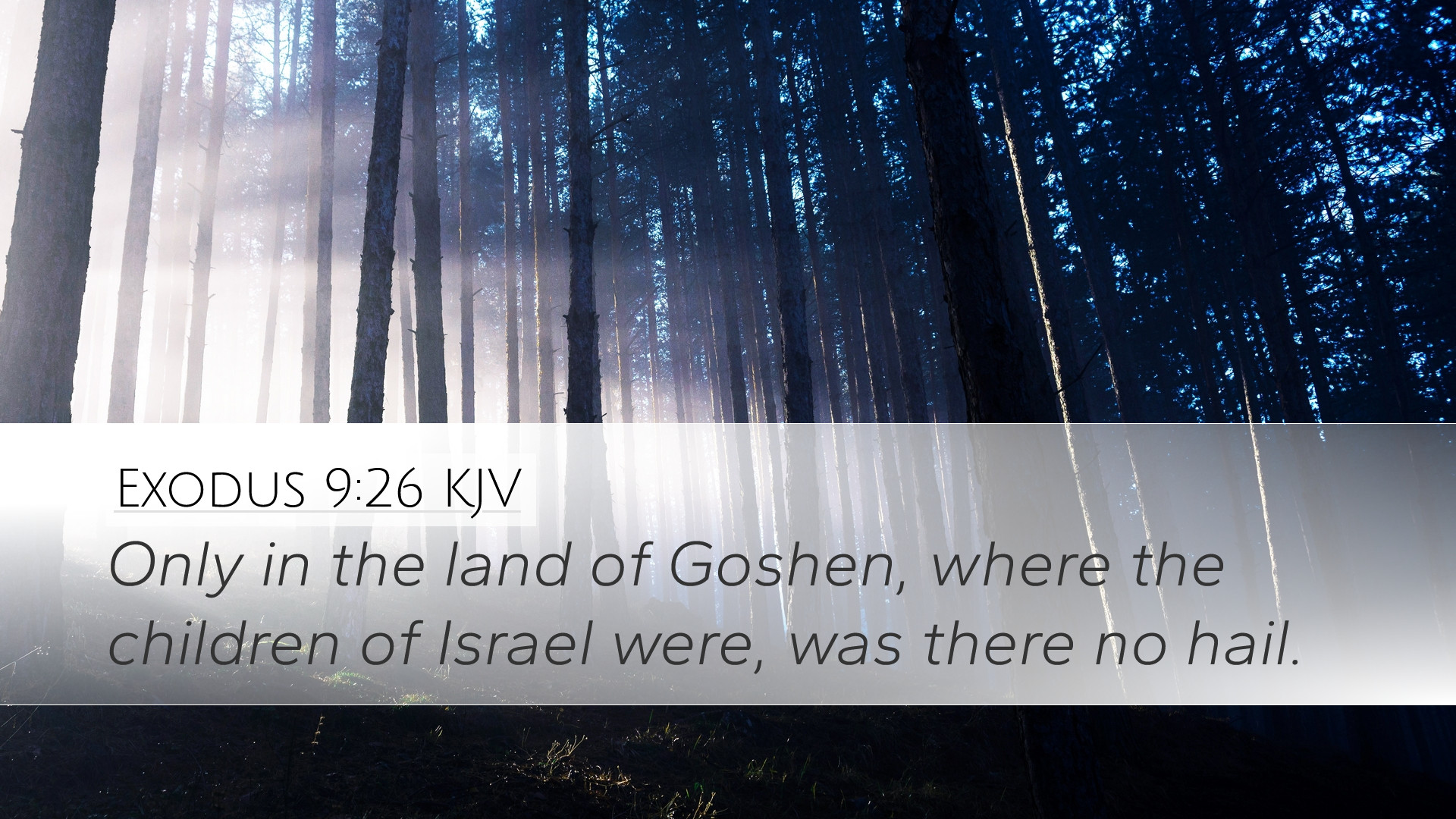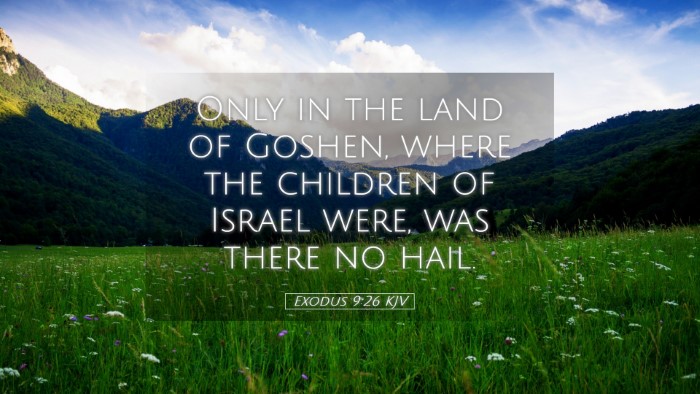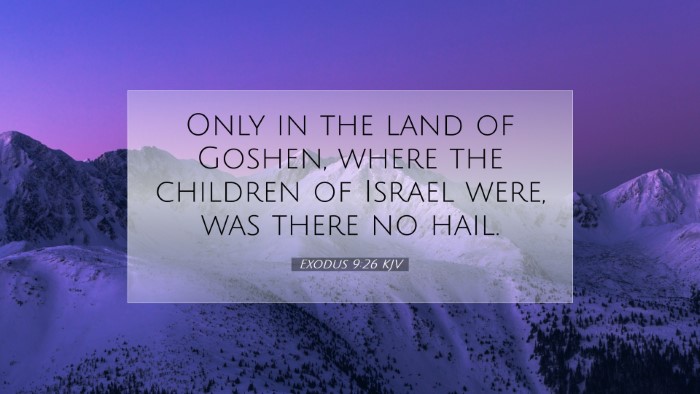Commentary on Exodus 9:26
Exodus 9:26 states: “Only in the land of Goshen, where the children of Israel were, was there no hail.” This passage is part of the narrative of the plagues in Egypt, specifically the seventh plague: hail. Here, we examine the significance of this verse in the light of various public domain commentaries.
General Context
This verse is situated within the broader context of God's judgment upon Egypt for the oppression of His people. The plagues demonstrate not only God's power but also His protective care over the Israelites living in Goshen. Each plague served as a direct challenge to the Egyptian gods, showcasing the sovereignty of Yahweh.
Matthew Henry's Commentary
Matthew Henry emphasizes the distinction made between the Egyptians and the Israelites in the plagues. He points out:
- Divine Protection: The absence of hail in Goshen illustrates God's special protection over His chosen people. While the Egyptians suffer devastation, the Israelites remain unharmed.
- Faith in Adversity: The Israelites' situation provides a model for faith amidst trials. Even in the midst of plagues, God distinguishes His own. This assures believers today of God's providence and care in their lives.
- Judgment and Mercy: Henry notes that while judgment is executed, there is also mercy—demonstrated by the fact that some among the Egyptians, such as those who feared the Lord, heeded the warning to shelter their livestock (Exodus 9:20-21).
Albert Barnes' Commentary
Albert Barnes offers a thorough analysis of the implications of the hail plague. His insights include:
- Geographical Significance: The mention of Goshen highlights the geographical division that contextualizes God’s covenant with Israel. It serves as a metaphorical dividing line between the curse and blessing, judgment and protection.
- Symbol of Deliverance: Goshen represents a place of refuge, symbolizing ultimately the spiritual refuge found in Christ. Barnes correlates this to the New Testament portrayal of believers as being in the “world but not of it” (John 17:14-16).
- God's Sovereignty: The precise control God exhibits over nature further enforces His omnipotence. In the face of natural disaster, a chosen remnant is preserved, showcasing His eternal plan for salvation.
Adam Clarke's Commentary
Adam Clarke's analysis brings additional depth to the understanding of this verse:
- Historical Context: Clarke discusses the historical backdrop of the plagues, indicating that some Egyptians may have turned to Yahweh during this time as a direct response to the horror of the plagues.
- Covenantal Relationship: He emphasizes the covenant relationship between God and Israel, which serves as the foundation for their protection. Clarke interprets Goshen's immunity not merely as a physical anomaly but as a testament to God's faithfulness to His promises.
- Typological Interpretation: Clarke also touches on typological interpretations, seeing parallels with the final deliverance of God's people and the promise of eternal security through Christ.
Theological Implications
From the combined insights of these commentaries, several key theological implications emerge:
- God's Active Protection: The narrative reinforces the belief that God actively protects His people in the world. This offers comfort and assurance for believers facing trials and tribulations.
- The Character of God: The distinct treatment of the Israelites serves as a reminder of God's justice and mercy. While He judges sin, He also provides refuge to those who belong to Him.
- Reflection on Modern Application: Pastors and theologians can draw parallels to contemporary issues, encouraging congregations to trust in God's providence amidst societal turmoil, reminding them of their identity and security in Christ.
Conclusion
Exodus 9:26 encapsulates a profound lesson of divine sovereignty, justice, and mercy. Through the lens of public domain commentaries from Matthew Henry, Albert Barnes, and Adam Clarke, we see a picture of God who not only rules over the natural world but also cares intimately for His people. The assurance found in God's protection over His chosen ones in Goshen serves as a timeless message of hope and encouragement for believers throughout history.


